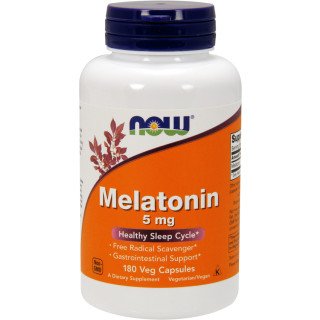AMINO9® is a cutting-edge blend of nine essential amino acids (EAAs) meticulously designed to support muscle growth and recovery. This...

SLEEP HEALTH
SLEEP HEALTH
Sleep health is essential for overall health and well-being as it helps you function at your best physically and mentally.
Ingredients
Specialty
Ingredients
Specialty Ingredients
Goal OVERVIEW
What You Should Know
FOOD FOR THOUGHT

SHAGANDHA® BY SABINSA
Shagandha® is a standardized powdered extract from the roots of Withania somnifera, commonly known as ashwagandha. Shagandha® offers various health benefits, including reducing stress, anxiety, and insomnia while improving cognitive function, reducing inflammation, and boosting the immune system. It is available in capsules, powders, and teas and is often used in herbal mixtures. Considered to be a breakthrough Adaptogenic.
Sponsored Content
FAQ
Nootropics, also known as “smart drugs” or “cognitive enhancers,” are substances claimed to improve cognitive function, focus, memory, and sometimes mood. While nootropics have potential benefits for cognitive health, their use for promoting restful sleep is a topic that requires careful consideration.
It’s important to note that most nootropics are not specifically designed to address sleep-related issues, and their effects on sleep can vary widely. Some nootropics may even have stimulating effects that could interfere with your ability to sleep or maintain restful sleep.
Before considering the use of nootropics for sleep, here are some important points to consider:
- Stimulating Effects: Many nootropics, such as caffeine and certain racetams, have stimulating effects that can increase alertness and interfere with sleep. Using stimulants close to bedtime can disrupt your sleep quality.
- Individual Variation: The effects of nootropics can vary widely from person to person. What works for one individual may work differently for another, and some might experience negative side effects.
- Lack of Research: Many nootropics need more scientific research regarding their effects on sleep. Some have potential benefits for cognitive function but may need to be better studied in the context of sleep promotion.
- Safety Concerns: The long-term safety of some nootropics is not well-established. It’s important to be cautious when using substances not thoroughly researched and regulated.
- Natural Alternatives: If you’re looking to promote restful sleep, there are natural approaches that have a stronger evidence base. Maintaining a regular sleep schedule, creating a relaxing bedtime routine, managing stress, and avoiding caffeine and electronics before bed can positively affect sleep quality.
- Consult a Healthcare Professional: If you’re struggling with sleep issues, it’s a good idea to consult a healthcare professional before considering nootropics or supplements. They can help identify the underlying causes of your sleep disturbances and recommend appropriate strategies for improving sleep.
Suppose you’re specifically interested in using supplements to improve sleep. Some natural options have been studied for their potential sleep-promoting effects, such as melatonin, magnesium, valerian root, and certain herbal teas like chamomile and passionflower. However, it’s important to consult a healthcare provider before starting any new supplement regimen, especially if you have underlying health conditions or are taking medications.
In summary, while nootropics may benefit cognitive function, their use for promoting restful sleep must be well-established and may not be a healthy or effective strategy. It’s best to focus on proven sleep hygiene practices and consult a healthcare professional if you’re experiencing sleep-related issues.
Getting enough sleep is crucial for overall health and well-being. Sleep plays a vital role in various physiological and cognitive processes, and its benefits extend to nearly every aspect of your life.
Here are some key benefits of getting adequate and restful sleep:
1. Physical Health:
- Cardiovascular Health: Proper sleep helps regulate blood pressure and reduces the risk of heart disease, stroke, and other cardiovascular issues.
- Immune Function: Sleep supports immune system function, helping your body fight infections and illnesses.
- Weight Management: A lack of sleep can disrupt hormones that control appetite, leading to weight gain and obesity.
2. Mental Health:
- Mood Regulation: Quality sleep helps regulate mood and reduces the risk of mood disorders such as depression and anxiety.
- Stress Reduction: Adequate sleep can reduce stress and improve your ability to cope with challenges.
3. Cognitive Function:
- Memory Consolidation: Sleep is essential for memory consolidation, helping you retain and recall information.
- Learning and Creativity: Quality sleep enhances cognitive functions like problem-solving, creativity, and learning.
- Attention and Concentration: Adequate sleep improves focus, attention, and overall cognitive performance.
4. Physical Performance:
- Exercise Recovery: Sleep is crucial for muscle recovery, tissue repair, and growth hormone release.
- Coordination and Reaction Time: Proper sleep enhances coordination, reaction time, and motor skills.
5. Hormonal Balance:
- Hormone Regulation: Sleep supports the balance of hormones in growth, stress response, and metabolism.
6. Cellular Repair and Regeneration:
- Tissue Repair: Sleep is when the body repairs and regenerates tissues, including skin and muscle cells.
7. Heart Health:
- Blood Pressure Regulation: Quality sleep helps regulate blood pressure, reducing the risk of heart disease and related complications.
8. Improved Cognitive Health:
- Reduced Cognitive Decline: Getting enough sleep over the long term may help reduce the risk of cognitive decline and disorders like Alzheimer’s.
9. Enhanced Emotional Resilience:
- Emotional Well-Being: Sleep contributes to emotional resilience, helping you manage stress and emotional challenges more effectively.
10. Longevity:
- Long-Term Health: Consistently getting adequate sleep is associated with a longer and healthier life.
11. Improved Quality of Life:
- Overall Well-Being: Quality sleep enhances overall quality of life, supporting physical, mental, and emotional well-being.
It’s important to note that the benefits of sleep are interconnected, and a lack of sleep can have a cascading effect on various aspects of health. Establishing a regular sleep routine, practicing good sleep hygiene, and prioritizing sleep as an essential part of your daily routine can help you experience these positive effects and maintain optimal health and well-being.
Sleep problems, also known as sleep disorders, can have various causes, including physical, psychological, environmental, and lifestyle factors. Understanding the potential causes of sleep problems can help you identify the underlying issues and seek appropriate solutions.
Here are some common causes of sleep problems:
1. Stress and Anxiety:
- Stressful life events, anxiety, and worry can lead to difficulties falling or staying asleep.
2. Insomnia:
- Chronic insomnia is a sleep disorder characterized by difficulty falling asleep, staying asleep, or experiencing non-restorative sleep. It can be caused by stress, underlying medical conditions, medications, or poor sleep habits.
3. Sleep Apnea:
- Sleep apnea is a condition where breathing repeatedly stops and starts during sleep. It can be caused by an obstruction in the airway (obstructive sleep apnea) or a communication issue between the brain and muscles controlling breathing (central sleep apnea).
4. Restless Legs Syndrome (RLS):
- RLS is characterized by uncomfortable sensations in the legs, often accompanied by an irresistible urge to move the legs. It can disrupt sleep and lead to insomnia.
5. Circadian Rhythm Disorders:
- Circadian rhythm disorders involve disruptions to the body’s internal clock, leading to sleep-wake cycle misalignment. Examples of circadian rhythm disorders include jet lag, shift work, and delayed sleep phase syndrome.
6. Medical Conditions:
- Various medical conditions can interfere with sleep, including chronic pain (such as arthritis), respiratory disorders (like asthma), neurological disorders, and gastrointestinal issues.
7. Medications:
- Certain medications can disrupt sleep patterns as a side effect. Examples include stimulants, antidepressants, and some medications for high blood pressure.
8. Substance Use:
- Alcohol, caffeine, and nicotine can interfere with sleep quality and disrupt the sleep cycle.
9. Sleep Environment:
- An uncomfortable sleep environment, excessive noise, bright lights, or an uncomfortable mattress can contribute to sleep difficulties.
10. Behavioral Factors:
- Irregular sleep schedules, napping during the day, and engaging in stimulating activities close to bedtime can disrupt sleep.
11. Hormonal Changes:
- Hormonal changes, such as those associated with pregnancy, menopause, or certain medical conditions, can affect sleep patterns.
12. Aging:
- Older adults may experience sleep patterns and quality changes due to natural aging processes.
13. Mental Health Disorders:
- Depression, bipolar disorder, and post-traumatic stress disorder (PTSD) can affect sleep quality and patterns.
14. Genetic Factors:
- Genetic predisposition can play a role in certain sleep disorders.
It’s important to note that the causes of sleep problems can be complex and multifaceted, often involving a combination of factors. Suppose you’re experiencing consistent sleep problems that impact your daily life. In that case, it’s recommended to consult a healthcare professional, such as a sleep specialist or a doctor, to identify the underlying cause and receive appropriate treatment.
Related Videos
Articles
Citrin® is a patented extract from the tropical fruit Garcinia cambogia, also known as Malabar tamarind. Its active component, hydroxycitric...
PeakO2® is a popular ingredient available exclusively through Compound Solutions and is found in numerous pre-workout formulas due to its...



























